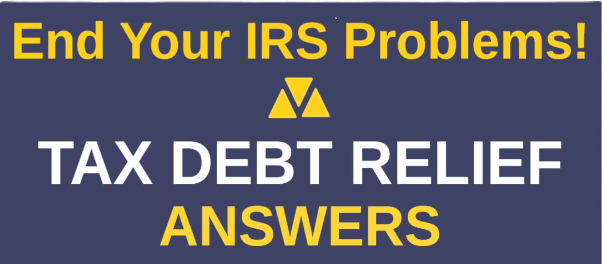A Guide to the IRS’s Offer in Compromise Program and the Benefits of Expert Guidance
This Guide to the IRS’s Offer in Compromise can help this Tax season to relieve a stressful time. For many individuals and businesses, as they grapple with the complexities of their financial obligations they need help. Amidst the anxiety, the Offer in Compromise (OIC) program can be a potential lifeline for those overwhelmed by tax debt. However, navigating the intricacies of this program can be a daunting task, particularly for taxpayers attempting to go it alone.

At TAX DEBT RELIEF ANSWERS, our tax relief professionals have witnessed the challenges that individuals face when trying to navigate the Offer in Compromise program. In this comprehensive guide, we’ll explore the intricacies of the OIC program, shedding light on its potential benefits and pitfalls, and how having a tax relief professional on your side may prove to be even more beneficial on the path to financial freedom.
What is the Offer in Compromise (OIC) Program?
The Offer in Compromise program is a tax settlement option offered by the Internal Revenue Service (IRS) that allows taxpayers to settle their tax debt for less than the full amount owed. This program can be a legitimate option for those who can’t pay their full tax liability or doing so would create a financial hardship.
Eligibility and Application Process
To be eligible for an Offer in Compromise, you must meet certain criteria and provide detailed financial information to the IRS. The IRS considers your unique set of facts and circumstances, including your:
- Ability to pay
- Income
- Expenses
- Asset equity
To apply for an Offer in Compromise, you must complete the necessary forms and submit your proposal to the IRS, offering to pay a reduced amount of your tax debt. The IRS evaluates the offer, deciding to accept, reject, or return it. Providing accurate and detailed financial information is key for a proper assessment of your offer by the IRS.
Benefits of the Offer in Compromise Program
The OIC program can bring significant relief to taxpayers, as it can prevent IRS collection actions, provide a chance to show economic hardship, and eliminate IRS tax liability. The program may be used to settle federal tax liabilities and, in certain cases, state tax liabilities.
The Pitfalls of Going It Alone
Navigating the complexities of the Offer in Compromise program can be challenging, and attempting to do so without expert guidance can lead to mistakes and missed opportunities. The application process can be time-consuming, and the IRS may reject your offer if it doesn’t meet their requirements or if your financial information is not accurately presented.
The Importance of Expert Guidance
Having a tax relief professional on your side can make all the difference when it comes to successfully navigating the Offer in Compromise program. Tax relief professionals have the knowledge and experience to guide you through the application process, ensuring that your financial information is accurately presented and that your offer has the best chance of being accepted.
In conclusion, the Offer in Compromise program can be a valuable tool for those struggling with overwhelming tax debt. However, it’s essential to understand the program’s intricacies, eligibility requirements, and application process. Seeking the assistance of a tax relief professional can make the process smoother and increase your chances of successfully resolving your tax liabilities.
Guide to the IRS’s Offer in Compromise Program



